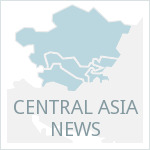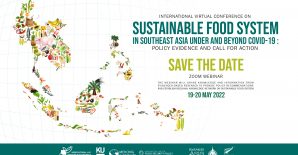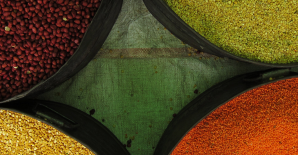News
ADB $145 million loan to help improve water supply services in Uzbekistan
The ADB's Board of Directors has approved a $145 million loan to help improve water supply and sanitation services in the Republic of Karakalpakstan, an autonomous republic within Uzbekistan. The funds will benefit 388,000 residents through improvements to local water supply networks, institutional capacity, and climate resilience awareness. Poor water supply is a problem in Karakalpakstan: only 37 percent of households in the proposed project area are connected to the centralized water network; of those, 40 percent receive water for less than six hours per week. - ADB
World Bank Group president meets Uzbek president, pledges support for Uzbekistan's reforms
World Bank Group president Jim Yong Kim met Uzbek president Shavkat Mirziyoyev in Washington on May 17, agreeing to $940 million in financing for four new projects in Uzbekistan on energy efficiency, horticulture, and emergency medical services. In addition, an agreement was reached on a contract for International Finance Corporation advisory services that will help structure a public-private partnership to attract investment to establish solar power plants in Uzbekistan. Kim spoke positively about ongoing reforms and pledged support for Uzbekistan's development agenda. - World Bank, Tashkent Times
FAO: Europe and Central Asia's quest to achieve zero hunger is threatened by poverty and climate change
According to FAO Director-General Jose Graziano da Silva, while the countries of Europe and Central Asia have made substantial progress in reducing undernourishment, achieving zero hunger in the region will require further support to small farmers and sustainable management of natural resources to respond to climate change. FAO figures show that 14 million people in the Europe and Central Asia region are food insecure. This includes 30 percent of the population in Tajikistan, 6.4 percent in Kyrgyzstan, and 6.3 percent in Uzbekistan. - FAO
Armed with gas and cows, Kazakhstan takes aim at land degradation
Kazakhstan is improving the reach of its domestic natural gas network and introducing efficient cow breeds in order to combat land degradation caused by deforestation and overgrazing. Mars Almabek, a Ministry of Agriculture official, reported that Kazakhstan imported 50,000 high-performing cows in the past five years from the United States and Europe. Almabek, speaking at a regional food security conference in Voronezh, Russia, also stated that authorities are trying to bring natural gas to rural areas so that local residents do not cut down trees for fuel. - Sydney Morning Herald
China helps Tajikistan tackle grassland degradation
Researchers from China's Xinjiang Institute of Ecology and Geography will continue working with Tajik counterparts to investigate grassland degradation. The institute, part of the Chinese Academy of Sciences, sent a research team to Tajikistan this spring to study vegetation and soil samples and will also look at alpine pastures in August. According to Li Yaoming of the Xinjiang Institute of Ecology and Geography, Tajikistan's grasslands have faced degradation in recent years as a result of population growth, warming climate, melting glaciers, overgrazing, and extreme weather events. - Xinhua
Uzbekistan intends to create infrastructure for Islamic banking and finance
A draft resolution currently under consideration may pave the way for Islamic banking in Uzbekistan. It calls for the establishment of a commission that will help design infrastructure needed to support Islamic finance in the country. One analyst believes that these services may potentially be popular in Uzbekistan given the country's majority-Muslim population. - UzDaily, EurasiaNet
Kyrgyzstan sends $157 million worth of fruits and berries to Eurasian Economic Union
Kyrgyzstan's fruit and berry exports to the countries of the Eurasian Economic Union (EEU) totalled approximately $157 million in 2017, according to agriculture minister Nurbek Murashev. According to Murashev, although dairy products are Kyrgyzstan's primary agricultural export, fruits and vegetables are also becoming an important source of earnings. Of the fruit and berry export totals cited, a nearly even split was sent to Kazakhstan and Russia. - AzerNews
Analysis & Related Information
How China's Belt and Road Initiative can extend its reach to the edge of the European Union
This opinion piece in the Hong Kong-based South China Morning Post takes a mostly positive view of the China-led Belt and Road Initiative (BRI), citing economic benefits for participating countries. Moreover, the author believes that the BRI can unlock opportunities for countries in the Eurasian Economic Union, adding that both China and Russia can gain by coordinating the two initiatives. The author also believes that pooling the resources of the Eurasian Development Bank, Asian Infrastructure Investment Bank, and the Silk Road Fund can help Central Asia meet its infrastructure needs. - South China Morning Post
Uzbekistan aglow after president's successful U.S. visit
Uzbek president Shavkat Mirziyoyev completed a three-day visit to the United States on May 18. While his meetings with American government officials consisted largely of discussions over security arrangements (particularly regarding Afghanistan), economic and business issues were also on the agenda. Uzbekistan reportedly signed $4.8 billion worth of business deals during the visit, although details were not immediately disclosed. The U.S. is also pledging technical assistance to Uzbekistan over its World Trade Organization accession bid. - EurasiaNet
Q&A: Uzbekistan has 'thirst for ideas, knowledge, technical expertise,' says UNDP official
Devex has published an interview with Helena Fraser, the United Nations Development Programme resident representative for Uzbekistan, where she discussed recent developments and prospects for development organizations and donors in the country. Fraser was generally optimistic about the government's development vision and stated that the country is looking for technical expertise from abroad in order to implement its goals. - Devex
Kyrgyzstan needs certification of products to trade with EU
Member of the European Parliament Michele Rivasi identified the certification of agricultural products as an obstacle stalling greater trade between Kyrgyzstan and the European Union. Following a meeting with the Kyrgyz government, Rivasi stated that Kyrgyzstan needs facilities and equipment to measure the level of pesticides and radioactivity of agricultural products. Kyrgyzstan has been using the General System of Preferences (GSP+) since January 2016 in the EU, which granted customs privileges for 6,2000 commodity items. However, it has been unable to fully take advantage of this status because of its lack of capacity to certify the quality and safety of its products. - News Agency 24
Publications & Reports
Impact of water users associations on water and land productivity, equity and food security in Tajikistan
M. Buisson et al. (2016). International Water Management Institute. Mid-term technical report on behalf of USAID.
Are overweight and obesity in children risk factors for anemia in early childhood? Results from a national nutrition survey in Tajikistan
M. Crivelli et al. (2018). International Journal of Public Health, 63(4), pp. 491-499.
Agricultural risks and farm land consolidation process in transition countries: the case of cotton production in Uzbekistan
U. Djanibekov and R. Finger (2018). Agricultural Systems, 164, July 2018, pp. 223-235.
Can a change in cropping patterns produce water savings and social gains: a case study from the Fergana Valley, Central Asia
A. Karimov, M. Hanrja, J. Simunek, B. Abdurakhmannov (2018). Journal of Hydrology and Hydromechanics, 66(2), pp. 189-201.
Contributions of burner, pan, and meat and salt to PM emission during grilling
M. Torkmahalleh et al. (2018). Environmental Research, 164, July 2018, pp. 11-17.
Events & Call for Papers
3rd Annual International Conference on Agriculture, Food Security, and Nutrition in Eurasia Featuring IFPRI's 2018 Global Food Policy Report
International conference and publication launch. 30 May 2018 in Moscow, Russia. The International Food Policy Research Institute is partnering with the Eurasian Center for Food Security (ECFS) at Lomonosov Moscow State University and the World Bank to launch IFPRI's 2018 Global Food Policy Report in Russia. For more information about the report, please visit the GFPR website. For conference details, please contact Jarilkasin Ilyasov at IFPRI.
International Conference on Agricultural Transformation, Food Security, and Nutrition in Central Asia Featuring IFPRI's 2018 Global Food Policy Report
International conference and publication launch. 1 June 2018 in Tashkent, Uzbekistan. The International Food Policy Research Institute is partnering with the Westminster International University in Tashkent (WIUT) to launch IFPRI's 2018 Global Food Policy Report in Uzbekistan. For more information about the report, please visit the GFPR website. For conference details, please contact Jarilkasin Ilyasov at IFPRI.
"Agriculture Trade and Foreign Investments for Sustainable Regional Integration in Caucasus and Central Asia" Conference
6 – 7 September 2018 in Baku, Azerbaijan. Organized by Leibniz Institute of Agricultural Development in Transition Economics (IAMO) and Institute of Scientific Research on Economic Reforms (ISRER). The aim of this conference is to serve as a platform to discuss options for regional integration in the Caucasus and Central Asian countries and to explore opportunities for increasing agricultural exports from the region. Researchers, public officials, and private sector partners are invited to participate. The conference will be conducted in English and Russian. Please click on the above link for further details. Abstract submission is open until 11 May 2018.
Archived issues of the news digest can be found on the Central Asia page under the ReSAKSS Asia website: http://resakss-asia.org/regions/central-asia. A link to the newsletter can be found under Blog Posts.
The articles included in this news digest have been generated from online sources. Any opinions stated herein are not representative of, or endorsed by, the International Food Policy Research Institute or its partners.



